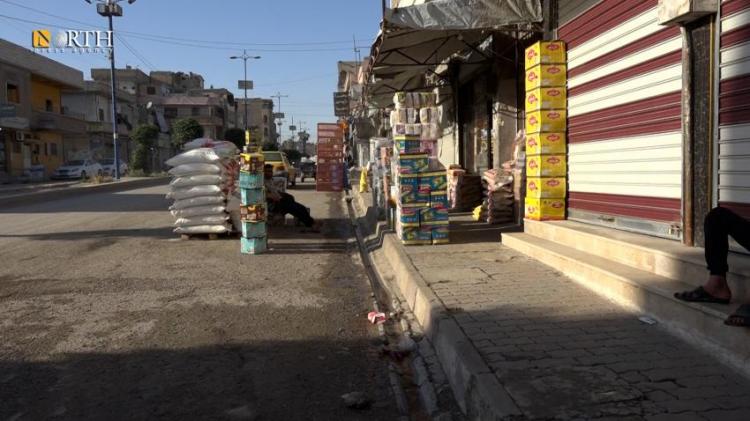Raqqa – North-Press Agency
Mustafa al-Khalil
Unlike previous years, old social customs and traditions almost completely disappeared in the city of Raqqa, in the country's north, and in other Syrian regions due to the deterioration of economic conditions, including the "exchanging dishes" habit. In other areas it is called "the pour of Ramadan", where people used to send dishes of food to their neighbors moments before the Iftar (break fast) period.
With the end of Ramadan approaching this year, some residents are bemoaning the decline of those customs that used to spread familiarization among people, while others fear that the economic situation will continue to deteriorate for years, which threatens to do away with social values and customs that have spread in the region for ages.
Fadi al-Ja'aber, from al-Qwaider neighborhood on Sayf al-Dawla Street, believes that exchanging dishes is an old habit among neighbors, but it has become difficult at the present time, as a result of high food prices in the markets, where each family buys only enough food.
Al-Ja'aber works in a workshop installing crystals near the Omar Bin al-Khattab Mosque in the middle of Sayf al-Dawla Street, where his daily wages do not exceed SYP 1,500, while his living expenses, along with those of his family, reach an average of SYP 10,000 per day.
The markets of Raqqa are witnessing an economic stagnation and weak shopping movement due to the collapse of the value of the Syrian pound against the exchange rate of the dollar, which recently exceeded the limits of SYP 1,600. The matter led to an "obscene price" that Syria has not seen since the outbreak of the war in 2011.
The price of a kilogram of tomatoes amounted to SYP 1,000 in the markets of Raqqa, and a kilogram of potatoes reached SYP 500, while the price of a kilo of rice reached SYP 1,200, according to vegetable sellers from Raqqa.
Muhammad al-Saffo, a butcher at al-Mansour Street said: "Exchanging dishes was a tradition and a beautiful habit in Raqqa, which brought harmony among the neighbors, especially during the month of Ramadan."
He added that the reason behind the disappearance of this tradition is that every person is busy with the matters of their family and their basic needs, which causes them to neglect social traditions.
While Fawza al-Ali, who is married and has three children, said: "Exchanging dishes has lessened among the neighbors, and has become very small nowadays."
Al-Ali added that during the current month of Ramadan, she received five dishes from one of her friends, but she was unable to return the dishes to her similarly as usual, only twice, because she suffers from "bad living conditions."

